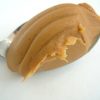Discovered in 1967 by Hoechst AG, acesulfame potassium (also known as acesulfame K) is a high-intensity, non-caloric sweetener. It is approximately 200 times sweeter than sucrose. Acesulfame potassium has a clean, quickly perceptible, sweet taste that does not linger or leave an aftertaste. Acesulfame potassium is not metabolized by the body and is excreted unchanged. It is sold under the brand name Sunett(TM) by Nutrinova, Inc., a Hoechst subsidiary.
Acesulfame potassium is currently used in thousands of foods, beverages, oral hygiene and pharmaceutical products in about 90 countries. Among these are tabletop sweeteners, desserts, puddings, baked goods, soft drinks, candies and canned foods. In the United States, acesulfame potassium is approved for use in numerous products including chewing gum, dry beverage mixes, dry dessert mixes, dry dairy analog bases, tabletop sweeteners, confections, soft candy, hard candy (including breath mints, cough drops and lozenges), baked goods, dairy products, carbonated beverages and alcoholic beverages. It received U.S. approval for use in soft drinks on July 6, 1998.
BENEFITS
- Helps Reduce Calories � Since acesulfame potassium is not metabolized, it contributes no calories. By substituting acesulfame potassium for sugar in foods and beverages, calories can be reduced substantially, or, in some products, practically eliminated.
- Remains Stable Under High Temperatures � The sweet taste of acesulfame potassium remains unchanged during baking. Even at oven temperatures over 200�C, acesulfame potassium shows no indications of breaking down or losing its sweet taste. Beverages containing acesulfame potassium also can be pasteurized under normal pasteurizing conditions without loss of sweetness.
- Excellent Shelf Life � Acesulfame potassium has a high degree of stability over a wide range of pH and temperature storage conditions.
- Tastes Sweet and Clean � Acesulfame potassium has a clean, quickly perceptible sweet taste that does not linger. Acesulfame potassium generally does not exhibit any off-taste in foods and soft drinks.
- Synergistic � Acesulfame potassium can provide a synergistic sweetening effect when combined with other non-nutritive sweeteners.
- Does Not Promote Tooth Decay � Acesulfame potassium does not contribute to dental caries.
- Useful in Diabetic Diets � Studies have shown that acesulfame potassium has no effect on serum glucose, cholesterol, total glycerol or free glycerol levels. People with diabetes may incorporate products containing acesulfame potassium into their balanced diet.
SAFETY
More than 90 studies have demonstrated the safety of acesulfame potassium. The U.S. Food and Drug Administration permitted the use of acesulfame potassium after evaluating numerous studies and determining it is safe for its intended use.
The FDA has set an acceptable daily intake (ADI) for acesulfame potassium of 15 milligrams per kilogram of body weight. ADI, expressed in terms of body weight, is the amount of a food additive that can be taken daily in the diet over a lifetime without risk. FDA's ADI for acesulfame potassium is equivalent to a 132-pound person eating 143 pounds of sugar annually (i.e., more than the average person consumes of all sugar and corn sweeteners combined).
The FDA approved acesulfame potassium for use in liquid non-alcoholic beverages (soft drinks) on July 6, 1998. FDA has reaffirmed acesulfame potassium's safety on eight separate occasions by broadening its approval.
The Joint Expert Committee on Food Additives (JECFA), the scientific advisory body to the World Health Organization and the Food and Agriculture Organization of the United Nations, reviewed the available research on acesulfame potassium and concluded that it is safe. JECFA has also established an ADI of 15 mg/kg of body weight.
The Scientific Committee for Food of the European Union published a comprehensive assessment of sweetening agents in 1985. This committee of toxicological experts from the EEC member countries accepted acesulfame potassium for use in foods and beverages. Acesulfame potassium has been used in Europe since 1983, and in the U.S. since 1988, with no known documented adverse health effects.
Calorie Control Council











